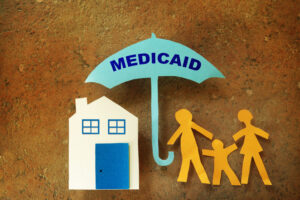West Virginia lawmakers must fund fully Medicaid
Ellen Allen
Cutting Medicaid funding or services is NOT an option. Lawmakers must restore all Medicaid line items to the governor’s proposed funding levels during the proposed special session in May — we must preserve and protect services for our families.
With millions of unspent funds left on the Medicaid table, Dr. Cynthia Persily, secretary of the Department of Human Services and Cynthia Beane, commissioner for the Bureau of Medical Services, addressed lawmakers at the Joint Standing Health Committee on April 15.
The unspent funds were explained largely due to the pandemic era where many West Virginians were simply uncomfortable with personal care providers coming into their homes. Consequently funds were not spent down in this line item.
Providers did not take advantage of these funds to increase the rate of pay for direct service workers who often make only around $10-$12 per hour. A rate study completed last year showed that an appropriate salary range should be somewhere in the range of $15.50-$18.60 per hour.
Ray Ratke, CEO of enCircle, also spoke at the Joint Standing Health Committee. EnCircle purchased the seven group homes of Stonebrook, residential living homes for West Virginians qualifying for the Intellectual and/or Developmental Disabilities Waiver.
Ratke urged lawmakers to increase the reimbursement rate. The six (enCircle closed one home) group homes are operating at unsustainable losses as they have been unable to serve over 100 residents due to staffing shortages that he believes are related to low wages.
I couldn’t agree more, and urge the Department of Human Services to increase the Medicaid reimbursement rate to a sustainable level, where providers can pay a living wage for West Virginia’s direct care workers who are providing life saving and life enriching work to our most vulnerable citizens — it is a matter of dignity.
While the Department of Human Services has the authority to increase the reimbursement rate on its own, it needs additional funding from the state legislature to do so.
In defense of the providers placing direct care workers into thousands of West Virginia homes every day, it can be a daunting task to absorb unexpected and massive amounts of additional funding — and reporting. First, as a leader of an organization that received pandemic era funding, there is the concern of spending the money correctly and meeting reporting and compliance requirements. This can be a challenge when money is expected to be put into communities quickly and with little initial guidance from the federal level.
Secondly, responsible leaders of organizations also ask the sustainability question: what happens when the additional funding is exhausted? How do I tell my staff that I can no longer pay them $15 per hour and that next month their paycheck will be considerably less? This is untenable and can lead to even greater turnover among direct care staff.
My adult daughter receives in-home personal care. Her life has been tremendously enriched by personal care workers. Her quality of life would be dramatically different without the services provided through Medicaid.
At the same time she has also suffered through periods of weeks and even months when providers did not have enough staff to send to her home. She has endured some years where turnover among caregivers was on an almost constant basis.
The in-home care my daughter, and tens of thousands of other West Virginia residents receive, is not funded through the IDD Waiver program.
When lawmakers stripped the governor’s budget, they also cut funding for rural hospitals, teaching hospitals, the Traumatic Brain Injury Waiver, and made major cuts to medical services including prescription drugs, private nursing care, and many other services that help us care for the most vulnerable West Virginia citizens.
Medicaid covers 53 percent of all children in West Virginia, including 56 percent of children with special health care needs
Medicaid covers 76 percent of nursing home residents in West Virginia, including Medicare beneficiaries who rely on Medicaid for long-term care, which Medicare does not cover — 87,000 Medicare recipients also rely on Medicaid for gaps in coverage
Failure to adequately fund Medicaid would have tremendous and long term detrimental effects on our economy and our people.
Stability is essential for the health and emotional well-being of people living with disabilities and special needs; it is also essential to our hospitals and the 540,000 West Virginians who depend upon Medicaid for their health related needs.
They all deserve our best effort.
It is within our power to do so. Lawmakers can and must fully fund Medicaid.
Originally published by https://westvirginiawatch.com/2024/04/25/west-virginia-lawmakers-must-fund-fully-medicaid/
